MOVIE REVIEW – To say that this Netflix Marilyn Monroe movie has had the kernel of “glamour” erased is an understatement. Andrew Dominik’s fictionalized biopic of the blonde diva is a relentless, brutal confession, revealing the darkest, in places almost nightmarish, recesses of Marilyn’s life, whether imagined or real.
At the Venice Film Festival, no other film has evoked such a real morbid fascination as Andrew Dominik’s Marilyn Monroe non-biopic, Blonde. Now that the film has finally been released on Netflix, it’s clear that even the “morbid” rating sounds mild. To call Blonde relentless would be an understatement for a film that subjects its protagonist, the fictional Monroe of Ana de Armas, to two hours and forty-seven minutes of unending sexual torture, prurient voyeurism and devastating dehumanization.
No, it’s not sexy and could be about many divas
Blondie is a deliberately shocking, even soul-destroying film that makes you feel like you’ve been chewed alive and spat out, so unspeakably cruel. The whole press was going around saying, “Oh my God, what sex scenes are in this movie,” but you can say anything about Blonde except that it’s sexy. Adapted from Joyce Carroll Oates’ fictional biographical novel of the same name, Blonde is not a Monroe film at all: plot aside, the actual Norma Jeane could be swapped for Britney Spears or Kim Kardashian, and the overarching resolution is less about Monroe’s lamentable suffering than about the wider violence perpetrated against women in the public eye. The film is shot and edited like a real snuff film from an epic war drama: the paparazzi’s flashes, piercingly loud with each aggressive click, become smoking gun barrels, and Dominik emphasizes the brutality of each horrific assault.
Dominic’s vision of the age is also punishing
This does not mean that the provocative director has thrown all conventions to the wind. In fact, at the beginning of the film, we are treated to a presentation inspired by the real life of Marilyn Monroe, starting with a snapshot of her humble childhood in Los Angeles. Her mother shows us some of the defects that the little child really saw from her and then picks up on the patterns: she drinks heavily, is abusive and sometimes downright brutal to her daughter, and is frequently driven to despair by the abandonment of Monroe’s father (who is a kind of distant phantom figure throughout).
But despite a tough start, the director shows his visionary talent from the outset, and he does a great job portraying the era. It’s 1933: a terrible fire has broken out in the hills above suburban Los Angeles, ash falling like snow from a cloud of jet-black smoke. Here’s an early example of the unsettling visual beauty of ‘Blonde’: framed in a whole range of aspect ratios, with a multitude of colour and monochrome shots, Dominik shows off much of his avant-garde, artistic and creative technical skill. In an early Los Angeles scene, cinematographer Chayse Irvin’s images of fire and crackling embers are licked; later scenes, shot in black and white with noir-like shadows, boast an eerily sumptuous vision.
The Kennedy scene is also punishing
Kid Monroe is sent to an orphanage. After this moment of misery, we immediately jump to his early twenties, when his first Hollywood appearances come in a row. He is clearly talented and invested in his craft, and, in sharp contrast to the unfortunately widespread ‘silly’ Monroe caricature, he is a testament to his love of books and intellect.
Not that any of the (male) powers-that-be care about his intellect: he is raped by a studio executive at his first audition, an act that will haunt him for the rest of his life. Most of the story elements follow this pattern: her every achievement is degraded by these men in the most primitive way to satisfy their own – often perverse – sexual desires. The Kennedy sex scene (which Ana de Armas fears will be posted on sex video portals) is not at all erotic or exciting but rather immensely disappointing, ironic, despairing and possibly true. Caspar Phillipson plays the president brilliantly, and to say that the scene in question debunks all myths is an understatement. The director portrays the legendary president as a lusty bigamist sex maniac; a big, bold move, which is something you rarely get from an American filmmaker
There are no fifty shades of grey here
This film is not really nuanced. Instead, it’s pitch-black throughout: moments of levity are incredibly fleeting and so often tragically tied to a single terrible person and consequence.
At the beginning of the film, a “love triangle” (in every sense of the word…) or triple sexual adventure develops between Cass (Charlie Chaplin’s son, played by Xavier Samuel) and Eddy (the son of Edward G. Robinson, another classic film star), which is eventually stopped by Monroe’s management. Soon after, we see his next partner Joe DiMaggio (Bobby Cannavale, superb as the brutal character), conquering Marilyn, then losing her rather quickly in a rather harsh spousal abuse. Cass, meanwhile, is revealed to be playing a sneaky trick on Monroe that will follow him for most of his adult life. Her relationship with playwright Arthur Miller (Adrien Brody) is briefly touched on in the film and provides some romantic respite, but the past trauma proves too much – exacerbated by the loss of her child. This is, incidentally, one of his many miscarriages, during which Dominik speaks to the foetus in what is undoubtedly one of his most provocative provocations, a Marylin dream sequence, and begs for its forgiveness. Yes, the film is that tough and creative throughout.
De Armas is on top, but his talent is unfortunately underused
But Armas is as convincing as expected, even if the script doesn’t really give him much to do other than show grief and often literal pain. This is Blonde’s biggest flaw: while Dominik’s ideological purpose is convincing overall, his artistic delivery of ideas too often comes at the expense of actual storytelling. The diva is often forced to degrade into a victim, raped, beaten or exploited repeatedly, in truly stomach-turning, spine-tingling ways.
While it’s terrible to endure, it’s hard not to respect the subversions Dominik plays with. There’s a meta wink at de Armas’ big-name casting, for example, via a voiceover that explores Monroe’s stardom… while she’s forced to suck off John F. Kennedy (Caspar Phillipson).
But Armas retains his native accent, leaving room for the biographical trappings that “The Blonde” clearly wants to avoid – adding to the sense that this is an idea, a concept, rather than a historical figure. De Armas is indeed fantastic, but the almost sure Oscar prediction is ironic in that few elements of the filmmaking ecosystem embody the commodification and voyeurism of Hollywood as much as the annual awards race.
One of those rare Netflix films that will be talked about for a long time to come
Blondie is at once beautiful and repulsive, in places downright disgusting, a relentless work of immense hopelessness. It is as shocking as any slasher, as horrific as any realistic war film – yet something is compelling about the director’s broader argument. It is executed with rare visual mastery, with some incredibly avant-garde and creative moments that are genuinely terrifying. While Blondie is far from perfect, it will undoubtedly be talked about for years to come, which is a massive success for both the director and Netflix.
-BadSector-
Blonde
Direction - 8.4
Actors - 8.5
Story - 7.5
Visuals/Music/Sounds - 9.2
Ambience - 8.2
8.4
EXCELLENT
Blondie is at once beautiful and repulsive, in places downright disgusting, a relentless work of immense hopelessness. It is as shocking as any slasher, as horrific as any realistic war film - yet something is compelling about the director's broader argument. It is executed with rare visual mastery, with some incredibly avant-garde and creative moments that are genuinely terrifying. While Blondie is far from perfect, it will undoubtedly be talked about for years to come, which is a massive success for both the director and Netflix.

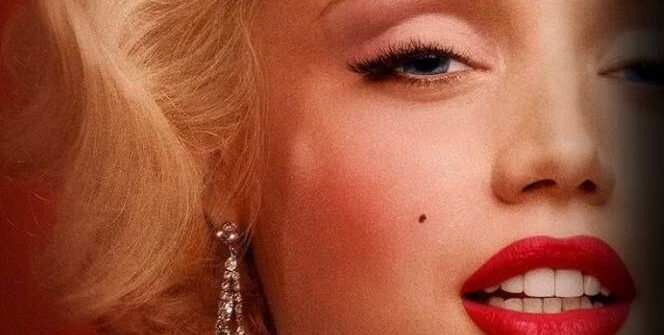
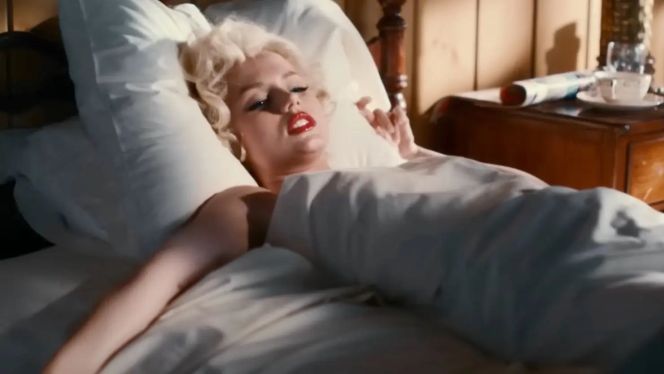
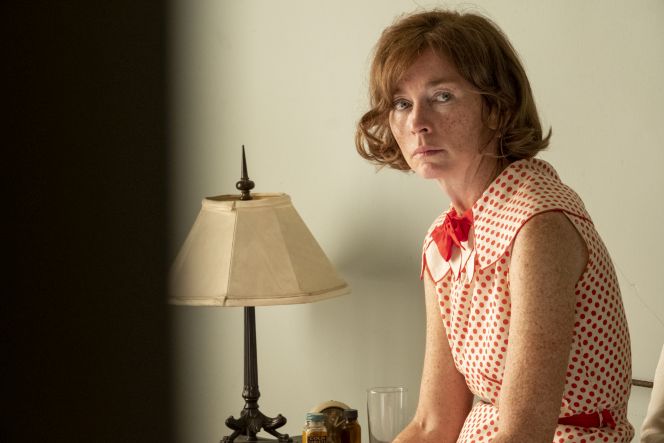
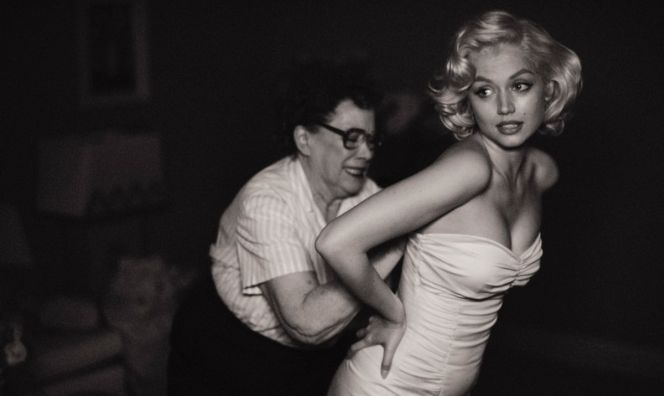
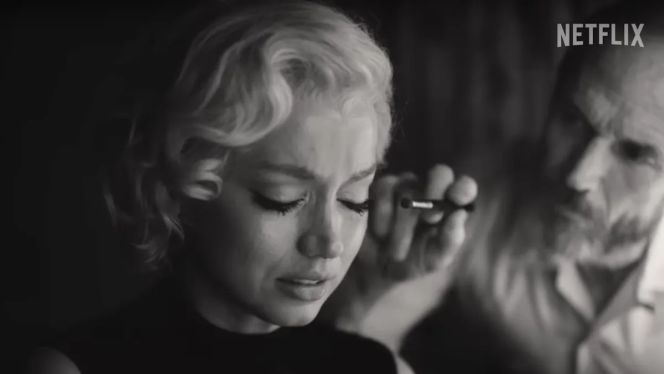
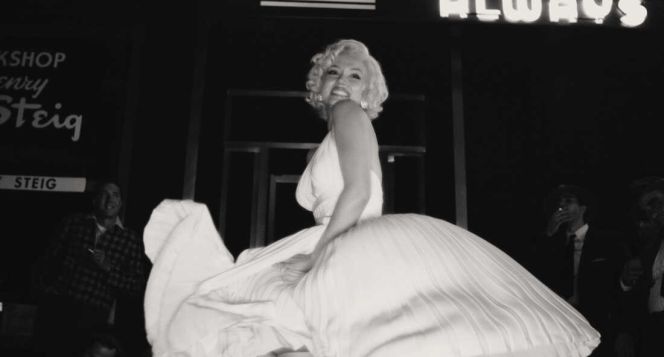








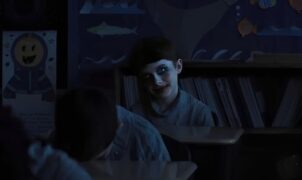

![[TGA 2025] Star Wars: Galactic Racer Focuses on High-Stakes Podrace Runs [VIDEO]](https://thegeek.games/wp-content/uploads/2025/12/theGeek-Star-Wars-Galactic-Racer-300x365.jpg)



Leave a Reply